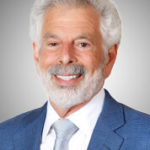June is Men’s Health Month, the purpose of which is to heighten awareness of supporting men’s health and encouraging best practices for long-term health amongst men. Recently AdvoCare’s Dr. Lauren Horton sat with Dr. Kenneth Goldberg to discuss how men can, and why they should, improve their self-care.
Self-care for men is more important than people realize. Many men hear their wives talking about spa days and hanging out with their girlfriends but may have never thought about what self-care looks like for themselves. The National Institute of Mental Health determined that as many as six million American men suffer from depression or other mental illness (footnote to stats at NIH). Despite this, men as a whole tend to be less likely to disclose these ailments and seek treatment. This behavior leads men to experience much higher rates of suicide, alcoholism, and substance abuse on average than women.
So what are some ways that men can practice self-care?
- Don’t be afraid to call on your friends. Communicating with friends and developing strong friendships gives you a safe space to express your stresses, frustrations as well as provide a place to offer accountability for your actions good and bad.
- Get moving. Physical activity has been shown to help reduce feelings of stress plus improving body composition may help to boost self-esteem.
- Get in touch with your feelings. This may mean taking time out to meditate or journal for a few minutes a day. While not fully researched, meditation may help structurally transform the brain and help change its response to stress. Meditation may also seems to contribute to increased mental strength and focus.
- Get away. Take some time off from work even if it is just for a day. Focus on doing things that you like and enjoy. If you aren’t sure what to do, try something new. Stepping away and taking time for yourself helps you to regroup and collect your thoughts.
In a recent poll, men were found to be 33% less likely to see a doctor than women. Why? Most woman go to the doctor annually as part of their preventative care. However, men often only go to the doctor when they feel sick or have a medical emergency. In a recent report by the Center for Disease Control and Prevention (CDC), half of men ages 18 to 50 do not have a regular source of health care. Making regular doctor appointments can best support a healthy future as well as reduce the likelihood of developing negative health outcomes long term. Some experts speculate that women live longer than men because they routinely visit their doctor.
When men go to the doctor, it is important to ask the following questions:
- How is my overall health? It is important to know if you are relatively healthy at each stage of your life.
- How is my blood pressure? Cardiovascular Disease is the leading cause of death in the United States, and high blood pressure is a risk factor for developing cardiovascular disease.
- How is my skin? If you have any moles, ask your doctor about them. Strange looking moles or skin spots may be a sign of skin cancer. Men are more likely to get skin cancer than women, including melanoma. Because men sometimes ignore subtle signs until they are an emergency, they typically discover skin cancers at a later stage which makes them more difficult to treat.
- Is my pattern of urination too frequent? Frequent urination may be an indicator of prostate or bladder problems.
- Are you concerned about any aspects of my health? If not, ask if your doctor has any specific lifestyle modifications you should make to help you you stay as healthy as possible.
Women are encouraged to do monthly breast exams, and Dr. Goldberg, AdvoCare Scientific and Medical Advisory Board member, suggests that men do monthly testicular exams. “Men should become familiar with the look and feel of their testicles and if they notice any change, consult their primary physician immediately.”
Dr. Kenneth Goldberg is a member of the AdvoCare Scientific and Medical Advisory Board Member and is compensated for his role. The above article is general health information and not intended or approved for the promotion of product. AdvoCare makes no association between disease states and product features outside those claims approved by the FDA. All changes in exercise and nutrition programs should be done in conjunction with your doctor’s recommendations.

Lauren Horton, PhD.
Dr. Lauren Horton is passionate about moving patient care forward through research. As a Division Research Director, she is at the forefront of groundbreaking studies and innovation. Her dedication to advancing knowledge and solving complex problems has led to her pivotal role in shaping the future of patient care in the healthcare industry.
Dr. Horton leverages her deep insights and knack for communicating complex ideas in an accessible way to educate and engage a global audience. In her spare time, she is an avid advocate for health and wellness, dedicated to making a positive impact on the world. She believes that knowledge is a powerful tool for change and strives to empower others with the information and inspiration needed to effect meaningful transformation.
Dr. Horton loves to help improve the quality of life of those around her. She has helped men and women from all over the country discover how small steps each day can lead to huge strides towards living a healthier lifestyle.
Dr. Horton holds a BS in biology from Rust College, a MS in health economics and outcomes research from Xavier University and a PhD in biomedical science from Morehouse School of Medicine and completed her post-doctoral studies at the University of Pennsylvania.

Kenneth Goldberg, MD
Organizations: Male Health Center, founder. Impotence Foundation, director. Men’s Health Network, advisory board.
Published Works: Nationally syndicated “His Health” column. When the Man You Love Won’t Take Care of His Health (Golden books, 1998). The Men’s Health Longevity Program (Rodale, 2001).
Education: Case Western Reserve Medical School, Urology Residency George Washington University.
“I’m extremely honored to be part of AdvoCare, as well as a member of a Board composed of leading experts in science and nutrition from across the United States.”




